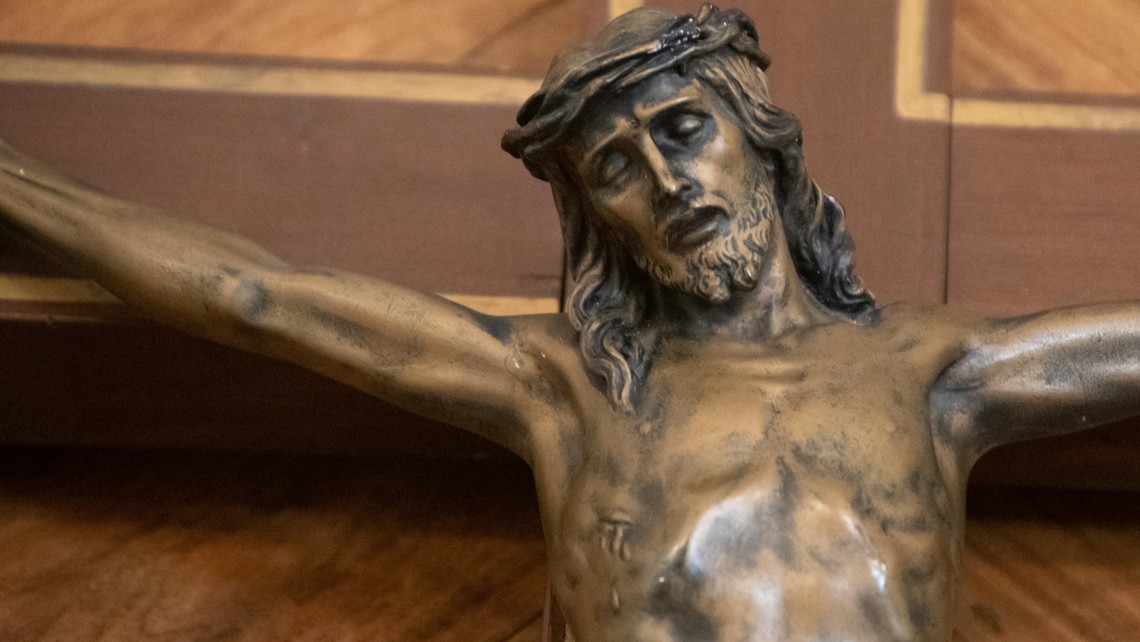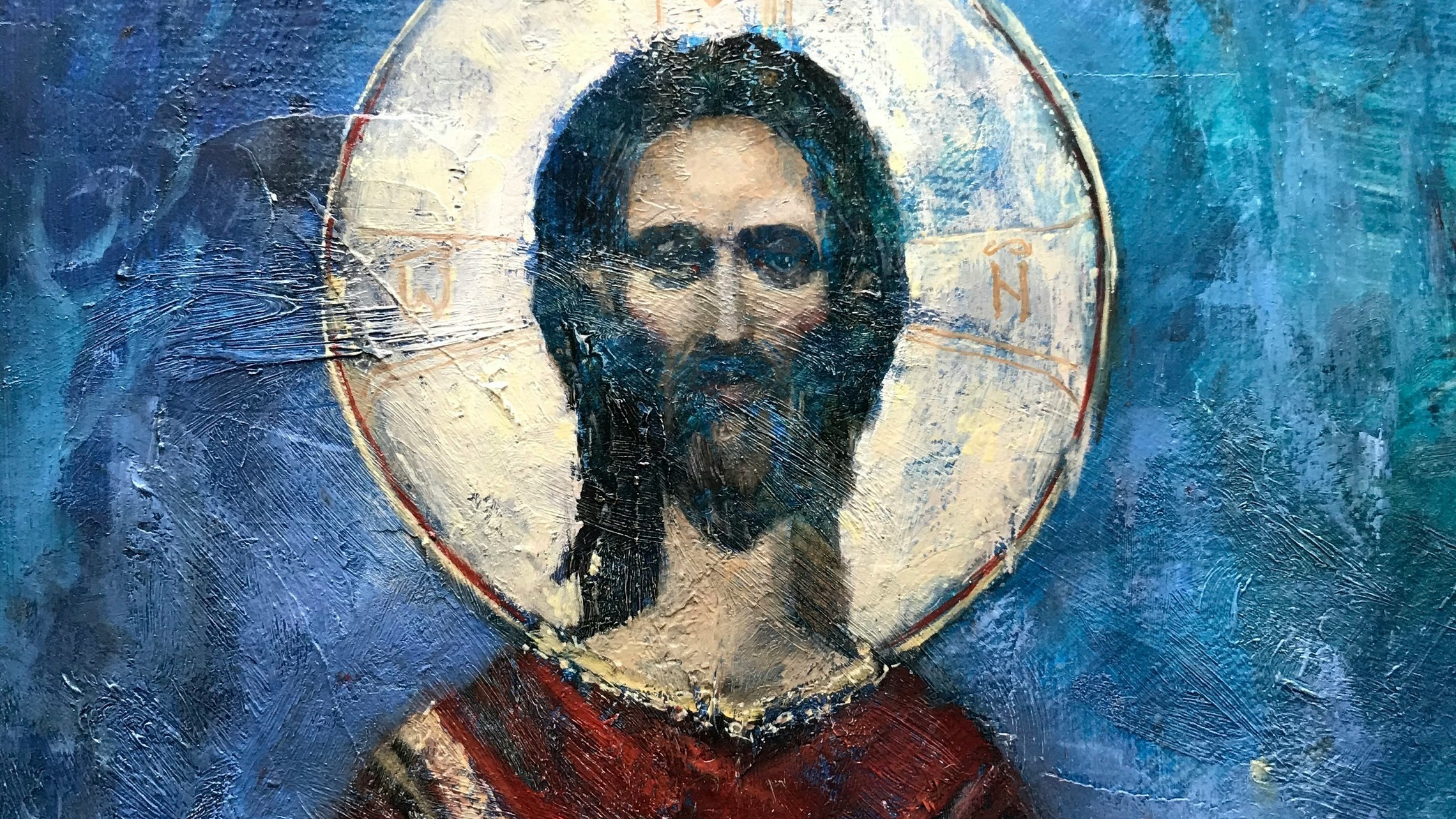
In the infamous Prodigal Son discourse, St. Luke describes the moment the youngest son, already in a dire predicament after having squandered his inheritance, was left desiring to eat from the food pods given to the swine. The progress of the son’s journey away from his father and the entire household left him with a sense of despair and desperation with no one to care for him let alone care for himself. At the point where there appeared no further hope, St. Luke describes how the son came to himself[1] which can be interpreted as an encounter with his sinful acts and the need to repent-his own personal examination of conscience and immediately sets out to seek his father’s forgiveness.
The Prodigal Son sets himself on a path of reconciliation and mercy, the encounter with his father is one filled with joy and reconciliation that his son has returned home, the one who was lost has now been found. The spiritual reclamation of the son offers us a perspective of the parable of the Lost Sheep[2] where our Lord reminds his disciples that I argue to the parable of the Lost Sheep that everyone is called to repentance which is a cause for joy for those who choose to come to the Father.
The entire parable reveals the gift of unconditional love offered by the father to the son but it also signifies the importance of recognizing one’s sins and the need for conversion and repentance. The son's return is not possible unless he does two things; one, recognizes his sin, and second, freely chooses to turn away from his former self-conversion of heart. The Prodigal son exhibits a contrite heart and the moment he chooses to arise and go to his father, this is his firm purpose of amendment to avoid the near occasion of sin.
When someone encounters the traditional formula of the Act of Contrition, the last stanza contains the following; “and I firmly resolve with the help of your grace to sin no more and avoid the near occasion of sin.” The sequence reveals the need that part of our evangelical and catechetical nature requires us to preach and teach on sin. Why is this important, without coming to a clear understanding of what sin is and does to the soul of a human being, the concepts of mercy, forgiveness, and reconciliation become moot points in the life of a person. Even more, the entire Paschal Mystery event of the life of Christ is viewed as an anomaly where the image of a corpus of Jesus Christ would be replaced with the image of a simple cross.
A relationship has existed between sin and mercy from the inception of the original sin and God’s mercy through his first proclamation to Adam and Eve post-original sin, to the coming of the Son of God to destroy sin and death. These significant events express the doctrinal necessity to teach the doctrine of sin because any human being who decides to turn his life away from sin is at the precipice of receiving God’s mercy rooted in his unconditional love for us. The Catechism reminds us that the Gospel is the revelation in Jesus Christ of God’s mercy to sinners.[3]
In his letter to the Romans, St. Paul describes the necessity to preach on sin proclaiming where sin increased, grace abounded all the more.[4] Uncovering sin is the responsibility of anyone involved in the ministry to preach and teach the Catholic faith. The entire catechetical process serves as part of a first period of spiritual and doctrinal inquiry for anyone who desires to enter an intimate union with Jesus Christ. The relationship between sin, mercy, reconciliation, and conversion initiates our call to Christian Holiness. The Catechism echoes this point, it describes the,
Desire for true happiness frees man from his immoderate attachment to the goods of this world so that he can find his fulfillment in the vision and beatitude of God. “The promise [of seeing God] surpasses all beatitude. . . . In Scripture, to see is to possess. . . . Whoever sees God has obtained all the goods of which he can conceive.[5]
Jesus’ mission involved the calling of all sinners,[6] from his encounter with Mary Magdalene [7]and Zacchaeus.[8] These events reveal the intimate relationship between Christ who desires to offer a spiritual prescription of healing, mercy, and forgiveness. The result in all these scenarios is that each individual takes up his cross and chooses to follow the Messiah the Son of God at the same time receiving Jesus’ unconditional love. Sin is destroyed, mercy reigns, and conversion to Jesus Christ sets the path to eternal salvation, this is why it is important to preach on sin.
"Confession heals, confession justifies, confession grants pardon of sin. All hope consists in confession. In confession is found the place of mercy. Believe, therefore, most certainly, and in no way hesitate, in no way doubt, and by no means despair of the mercy of God. Have hope in confession, have faith in it. Do not despair of this remedy of spiritual health. And do not despair in your healing, so long as you desire to turn to better things."
St. Isadore of Seville,
Synonyma or On the Lamentations of a Sinful Soul (53)






